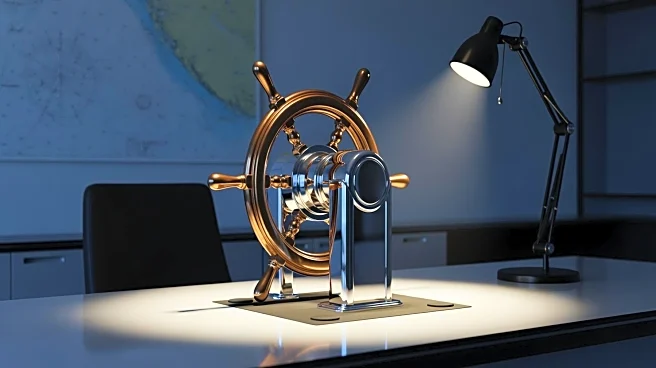What's Happening?
Christopher J. Wiernicki, Chairman and Chief Executive of the American Bureau of Shipping (ABS), emphasized the importance of decisive leadership in the evolving Maritime 5.0 world during a keynote address
at the North American Marine Environment Protection (NAMEPA) Awards. Wiernicki highlighted the rapid changes driven by artificial intelligence, advanced fuels, and digital ecosystems, stressing that leadership must be clear, decisive, and safety-focused. He outlined a strategic playbook for success that includes a relentless focus on performance and the adoption of transformational technologies such as AI, nuclear, green hydrogen, carbon capture, and battery storage. Wiernicki also received a Lifetime Achievement Award for his contributions to maritime innovation and safety.
Why It's Important?
The emphasis on decisive leadership and technological adoption is crucial as the maritime industry faces increasing complexity and rapid technological advancements. The integration of AI and other transformative technologies can provide competitive advantages and improve operational efficiency. This shift is significant for stakeholders in the maritime sector, including shipping companies, regulatory bodies, and environmental organizations, as they navigate the challenges of modernization and sustainability. The recognition of Wiernicki's leadership underscores the importance of strategic vision and innovation in driving industry progress.
What's Next?
As the maritime industry continues to evolve, stakeholders are likely to focus on implementing the strategic guidance provided by leaders like Wiernicki. Companies may increase investments in transformational technologies to enhance their competitive edge and align with environmental and safety standards. The industry could see further collaboration between organizations like ABS and NAMEPA to promote sustainable practices and innovation. Future discussions may center around the integration of these technologies and their impact on maritime operations and environmental protection.
Beyond the Headlines
The push for technological transformation in the maritime industry raises ethical and regulatory considerations, particularly concerning the adoption of AI and nuclear technologies. Ensuring safety and compliance with international standards will be critical as these technologies are integrated into maritime operations. Additionally, the focus on sustainability and environmental impact may drive long-term shifts in industry practices, influencing policy development and global maritime regulations.








